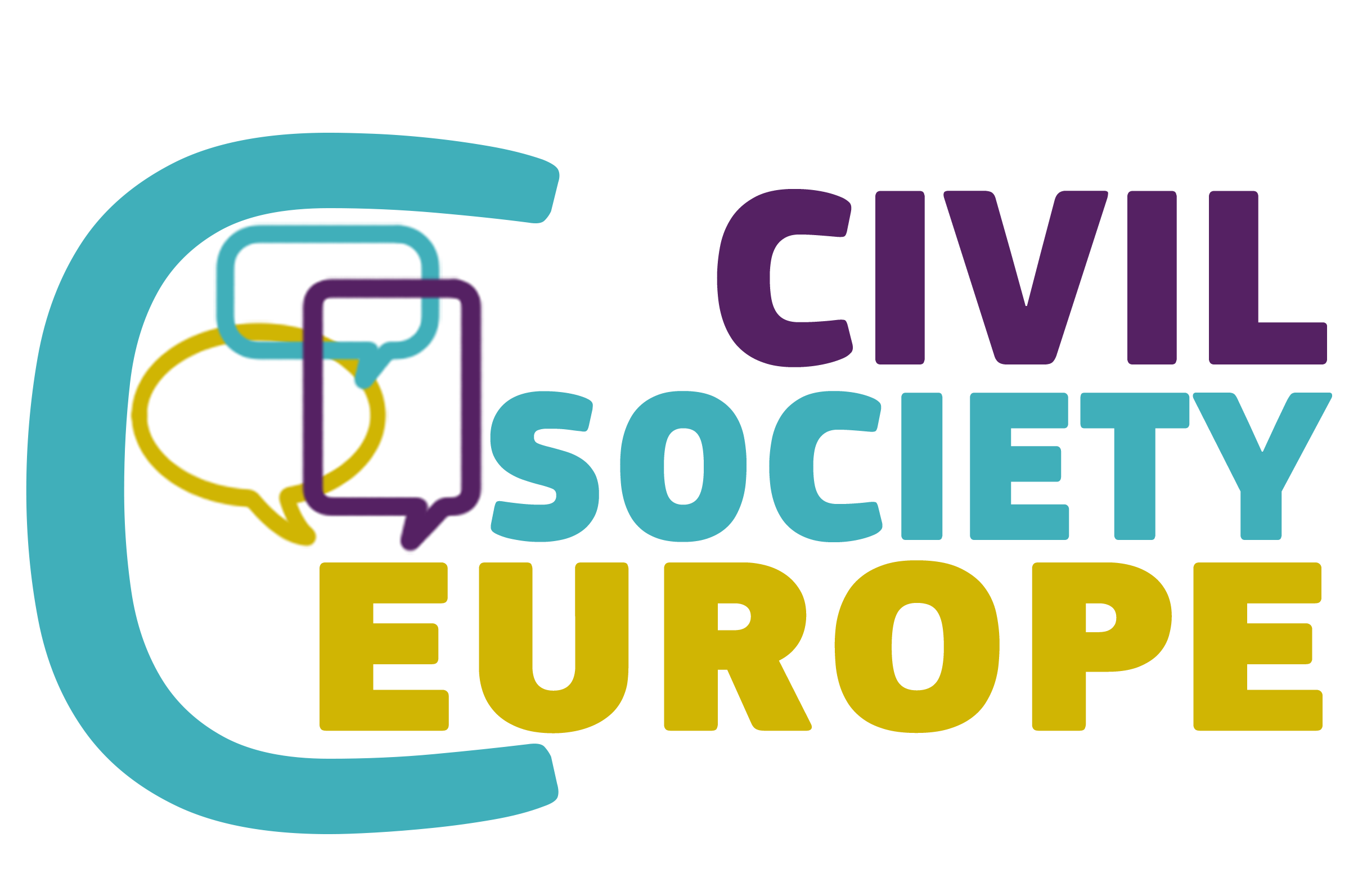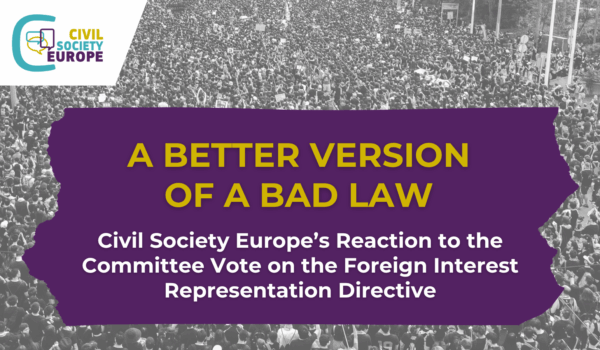On October 16th, a vote in the Internal Market (IMCO) Committee took place on the Directive on Interest Representation Services on Behalf of Third Countries. This Directive would establish rules to make lobbying on behalf of non-EU countries more transparent. Civil Society Europe welcomes the results of this vote with caution.
As we have previously analysed, the proposed directive contains problematic elements such as the vagueness on who would have to register, the risk of stigmatisation ‘foreign actors’ could face by being on such a register, the administrative burden for administrations and smaller organisations, interference with existing national transparency registers, as well as creating further obstacles for the single market. This is why we have called for either the withdrawal of the Directive, or turning it into a legislation that ensures transparency of all lobbying services (whether funded by non-EU or EU countries), with strong protections for fundamental rights.
The rapporteur, who also had doubts about the Directive, presented a draft report with improvements. It strengthened protections for academic and media freedom and added a focus on fundamental rights. But these changes don’t address the core problem: the proposal uses the wrong kind of tools to deal with foreign interference.
Even so, the political agreement reached in the Committee aimed to clarify this confusion. It made it clear the Directive should cover actual lobbying services and not NGOs who get grants from non-EU sources.
The compromise voted by the Committee is a step forward. It focuses the Directive on contractual lobbying services and excludes grants. Sanctions are fair and are limited to administrative fines. While these are positive changes, several problems remain:
- The compromise clearly states that activities covered by the Directive are based on the definition of services in art. 57 of the Treaty on the Functioning of the European Union. However, the criteria used to identify a service are not clear.
- It isn’t clear how effective safeguards will be, including the ban on criminal sanctions. This is due to the possibility that stricter regulations will be introduced once the Directive is implemented, as suggested by the new article 4.
- The new article 3.2.ba was introduced to protect civil society’s role in public policy making. However, which activities are excluded is unclear. The definition of civil society considered could also exclude some organisations.
- The compromise proposes a new term, ‘third country sponsor’, without specifying its meaning.
The above should be addressed in the Plenary. That being said, no further changes will fully prevent this Directive potentially being misused once implemented. The risk of governments using it to attack civil society remains large, and the Directive will be ineffective in tackling foreign interference.


